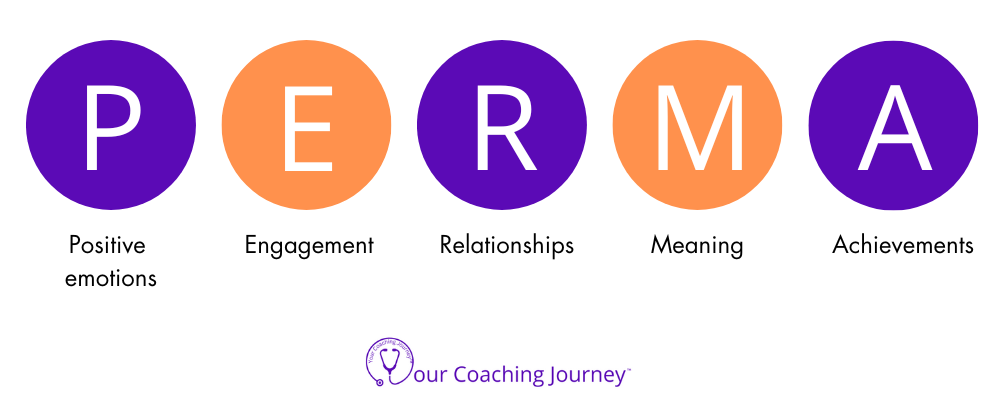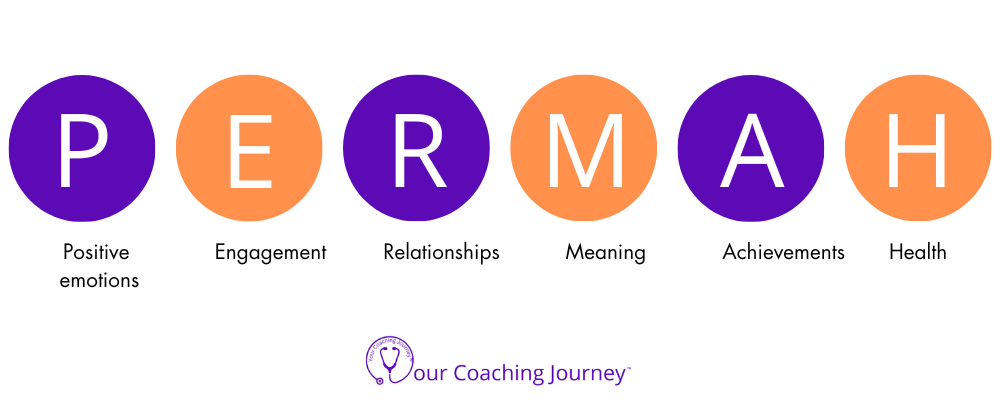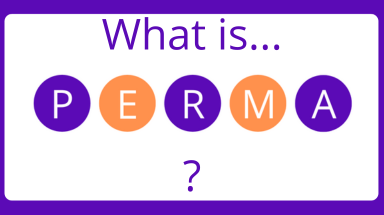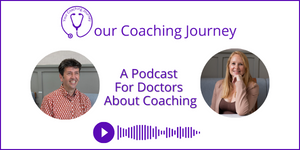What Is PERMA?
PERMA is a model that has been created by Positive Psychologist Martin Seligman. According to Martin Seligman individuals can work towards flourishing in life by being attentive to, maintaining, and building up the 5 elements of this model.
Flourishing is one of the most important and promising topics studied in Positive Psychology. Flourishing is more than being happy, it is multi-dimensional and a more holistic way of living a life full of happiness and wellbeing. And it can help you to lead a full life, hitting all the markers and accomplishments of a pleasant, good, and meaningful life.
Here is is in a short video describing this model.

What Does PERMA Stand For?
- Positive emotion: more than happiness, positive emotions include hope, interest, joy, compassion, pride, amusement, and gratitude. Increasing positive emotions helps individuals build physical, intellectual, psychological, and social resources that lead to improved resilience and overall wellbeing.
- Engagement: This relates to Csikszentmihalyi’s concept of “flow.” Flow activities provide complete engagement to the exclusion of everything else. They includes the loss of self-consciousness and complete absorption in an activity, often losing track of time.
- Relationships: feeling supported, loved, and valued by others. Responding enthusiastically to others, particularly in close or intimate relationships, increases intimacy, wellbeing, and satisfaction.
- Meaning: As humans we tend to search for meaning and have a need for a sense of value and worth. Seligman discusses meaning as belonging and/or serving something greater than ourselves. Everyone has a different sense of what this might entail, but having a purpose in life helps individuals to focus on what is really important to them. Meaning may be pursued through a profession, a social or political cause, a creative endeavour, or a religious/spiritual belief. People who report having purpose in life live longer and have greater life satisfaction and fewer health problems.
- Accomplishments: also known as achievement, mastery, or competence. A sense of accomplishment is a result of working toward and reaching goals, mastering an endeavour, and having the self-motivation to finish what you set out to do. This contributes to wellbeing because individuals can look at their lives with a sense of pride. Setting goals and celebrating achievements will help to promote this element of the model.
In more recent years the element of Health as been added to the model (known as PERMA+ or PERMAH.

How could you use PERMA in the coaching room?
I’m sure you can see how this model sits so well with coaching. And you may wish to use it as a framework to coach within. In and of itself it isn’t a coaching framework, but it is a useful model to help us guide a client towards a greater sense of subjective wellbeing.
Each element is independent of the others but together they combine beautifully to give a full, well-rounded and balanced, sense of happiness and satisfaction. It may be that some elements are fine, but one or two are lacking for your client. It may be that in their home life they are scoring well across the board, but at work they aren’t, or vice versa.
Positive psychology is just one approach that makes up our transformational coaching diploma. You can find out more about the diploma and our next course dates here.
In our podcast, episode 27, we talk more about PERMA, and introduce a tool called The PERMAH Wheel’ which you could work through with you clients. with clients. You can listen to it here:
To find out about more about using the PERMA model in the coaching room, listen to the episode we recorded for our podcast here.




